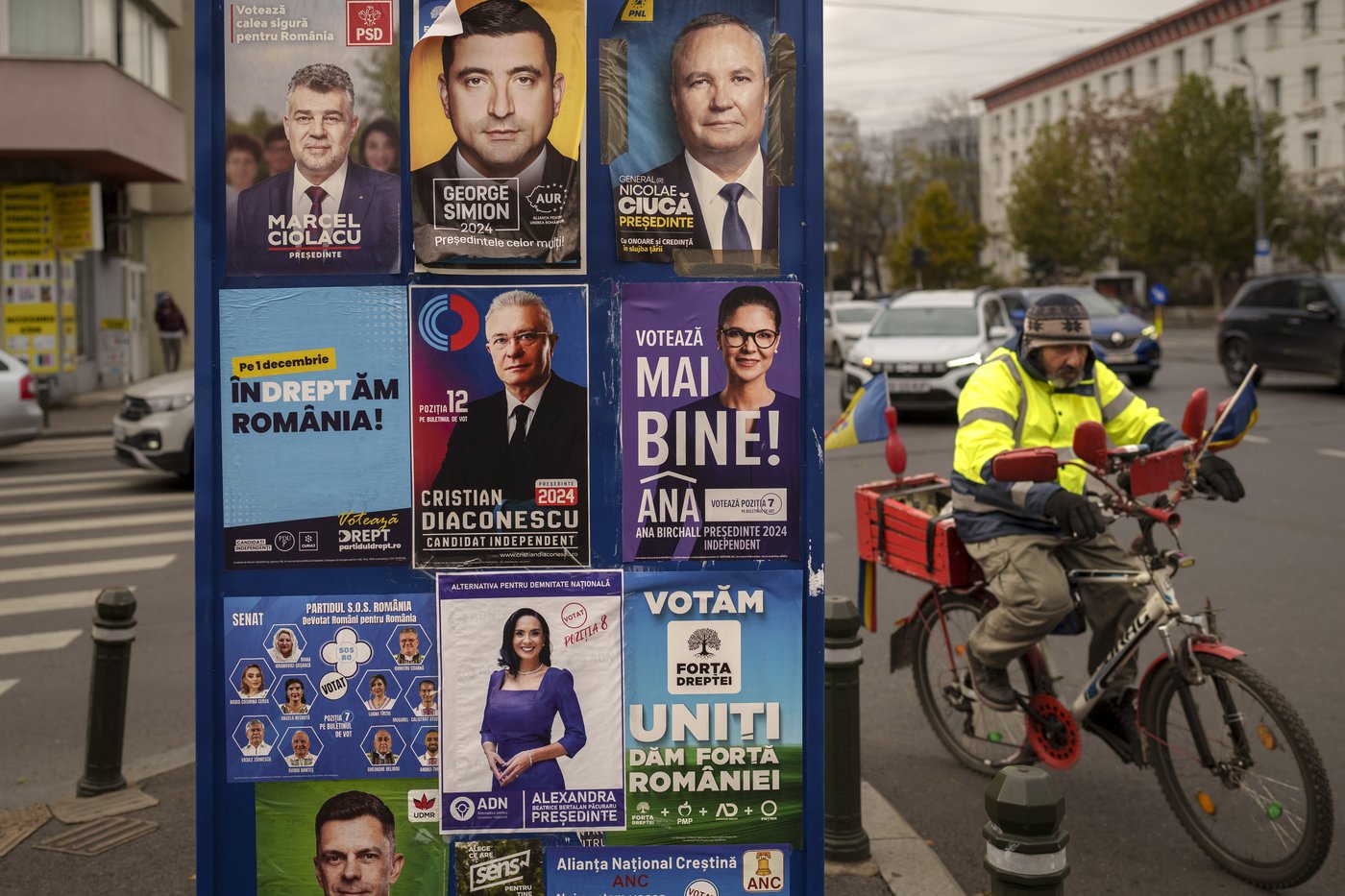
Romanians cast ballots in a presidential election that may deepen divisions inside the EU
Voters in Romania cast ballots on Sunday in a runoff for the presidency between a centrist independent and a hard-right euroskeptic, with the result potentially impacting both the EU’s unity and the nation’s faltering economy.
The fall of a pro-Western coalition administration was precipitated by the resounding victory of 38-year-old hard-right nationalist George Simion, who is critical of European Union leadership and opposes military help to neighboring Ukraine. There were large capital outflows as a result.
Nicusor Dan, 55, a centrist mayor of Bucharest who is adamantly pro-EU and pro-NATO, has promised to crack down on corruption and stated that Romania’s support for Ukraine is essential for its own security against an increasingly dangerous Russian threat.
The defense council, which makes decisions about military assistance, is one of the many powers held by the president of the EU and NATO states. Along with having the authority to veto EU votes that need unanimity, he will also be in charge of foreign policy.
In order to reassure investors and try to prevent a downgrading in Romania’s credit rating, the elected leader will also need to designate a prime minister to negotiate a new majority in parliament and lower the country’s budget deficit, which is the biggest in the EU.
For the first time since the first round, an opinion poll on Friday put Dan just ahead of Simion in a close contest that will rely on voter turnout and the sizeable Romanian diaspora.
The director of Romania’s biggest employers’ association, Radu Burnete, stated that “trust can be lost much more easily in Romania and it could… take generations to gain it back,” in contrast to Western states that can more easily afford mistakes.
“We cannot afford to drift.”
Voting begins at 7 a.m. (0400 GMT) and closes at 9 p.m. (1800 GMT). Exit polls will be conducted right after the polls close.
Inaccurate information
A win for Simion, a supporter of US President Donald Trump, would put the nation at risk of international isolation, undermine private investment, and destabilize NATO’s eastern flank, according to political analysts.
On the same day as the voting, Poland will hold its first round of presidential elections, with conservative historian Karol Nawrocki and pro-EU Warsaw Mayor Rafal Trzaskowski likely to lead the field.
A win for Simion and/or Trzaskowski would add prime ministers from Hungary and Slovakia to a group of euroskeptic leaders amid a Central European political upheaval that may deepen EU divisions.
“What the (nationalists) want is a European Union that is as little integrated as possible,” explained historian and political commentator Ion M. Ionita.
“One that is very little united from a legislative standpoint in which decisions are only taken nationally, but still benefitting from European money.”
Nearly six months have passed since the first vote was canceled in favor of far-right candidate Calin Georgescu, who was later barred from running again, due to suspected Russian meddling, which Moscow has denied.
Simion’s success can be attributed in large part to public outrage at the cancellation, which was criticized by the Trump administration, as well as dissatisfaction with mainstream parties that were held accountable for corruption and exorbitant living expenses.
Simion has stated that he would choose Georgescu as his prime minister since he supports nationalization and openness with Russia.
Online misinformation has been rampant once more in the run-up to Sunday’s vote, according to some analysts.
The specialist at Oxford University’s Blavatnik School of Government, Roxana Radu, stated, “We’re seeing disinformation spreading like wildfire across social media platforms – through bots and strategic reshares mimicking authentic posting.”
All Categories
Recent Posts
Tags
+13162306000
zoneyetu@yahoo.com


